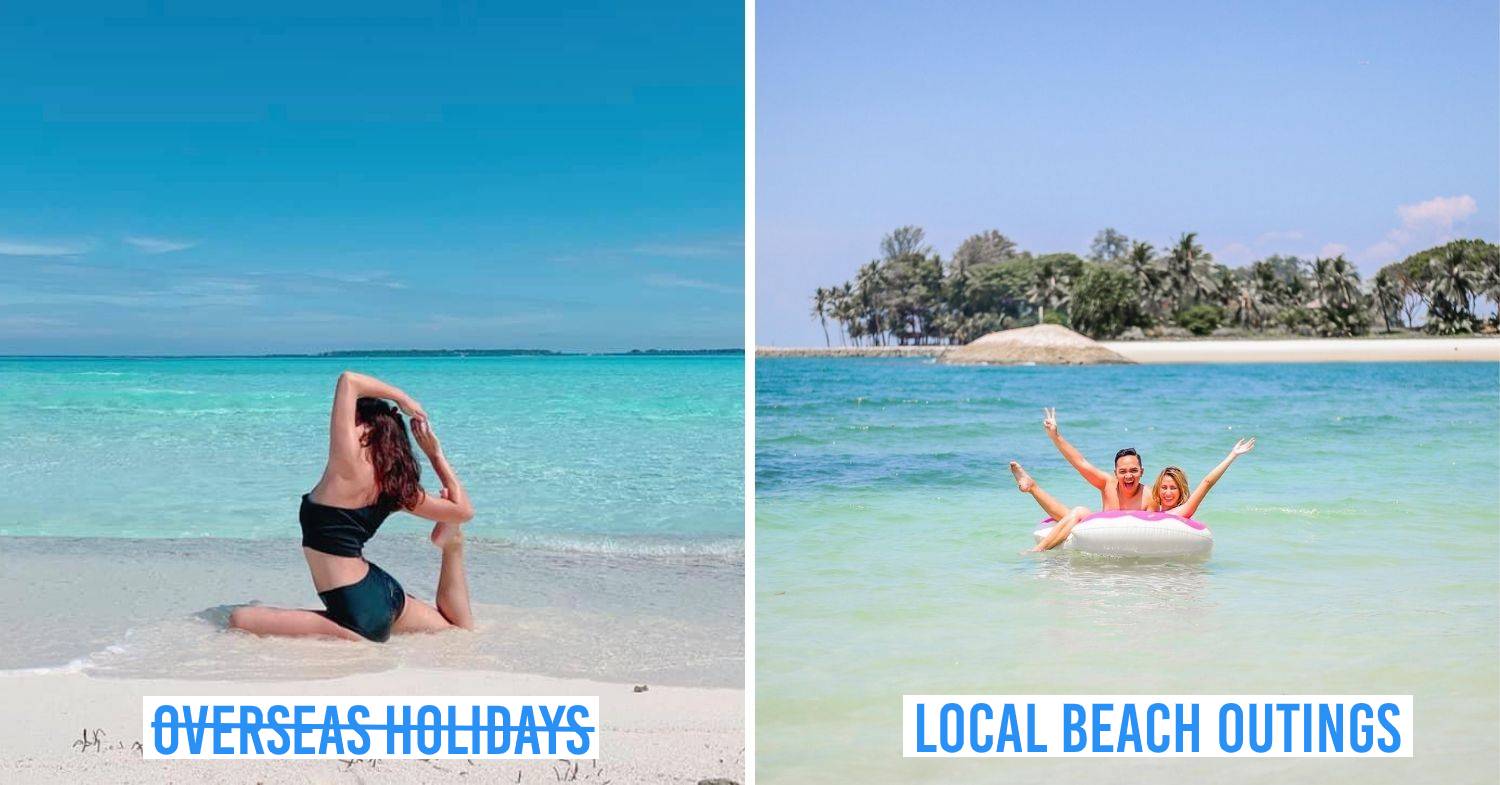Why Singapore’s beaches are more crowded than ever
Since the pandemic hit our shores, we’ve transitioned into a whole new world with mandatory mask-wearing, SafeEntry check-ins and work-from-home arrangements. Phase 2 has been kinder on us, since we’re now allowed to go out, but recently, a new phenomenon has emerged: Singaporeans are now flocking to the beach more than ever.
In a bid to understand this recent trend, I went down to popular beaches in Singapore to hear from the people there themselves. Much to my surprise, even on an uneventful weekday morning, there was still a sizeable crowd – parents hanging out with their kiddos, cliques lepak-ing on picnic mats and water sports enthusiasts stand-up paddling. Here’s what I gathered:
1. We’ve been cooped up indoors for too long
As a typical Singaporean who has limited tolerance for our humid weather, I’ve never been much of a beach person, and would seek solace from the sun in malls and cafes. Hitting the beach? That used to be way too much effort.
However, after I went on my first local beach excursion in over 2 years, I now understand what the hype is all about. The sight of the sea and accompanying breeze and sunshine is a refreshing contrast from being in air conditioned rooms all day.
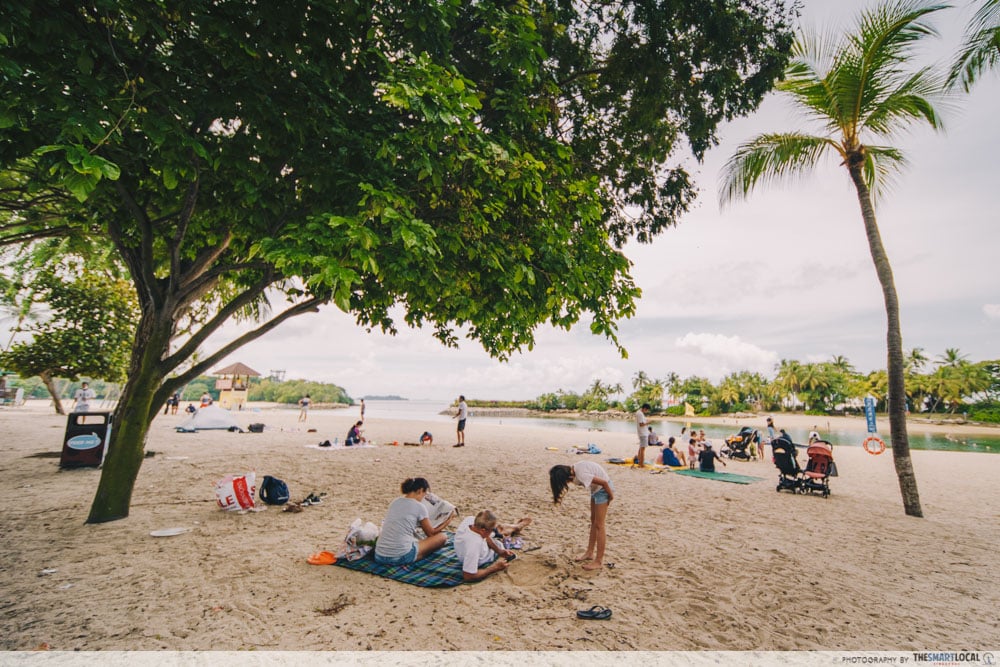
I approached a few groups there, and they shared that due to the Circuit Breaker, they’d previously been cooped up at home for a good 2 months and really needed a breather. Several groups also explained that they hadn’t met their friends in a long time, and wanted to do something different from their usual shopping outings.
Notably, some said that they were here to create “new memories”. In pre-COVID-19 days, we used to just jet off to Bali or Bintan with friends during our long weekends, and might not have spent much time on Singapore’s beaches. It turns out that hanging out at local beaches was a new experience for them too.
2. We miss overseas getaways like Bali and Phuket
According to a survey by Expedia, Singaporean vacationers are the 2nd biggest beachgoers in the world. Recently, Maldives, Bali and Phuket were among the top 10 most searched holiday destinations, which goes to show we’re sorely missing our beach vacays.
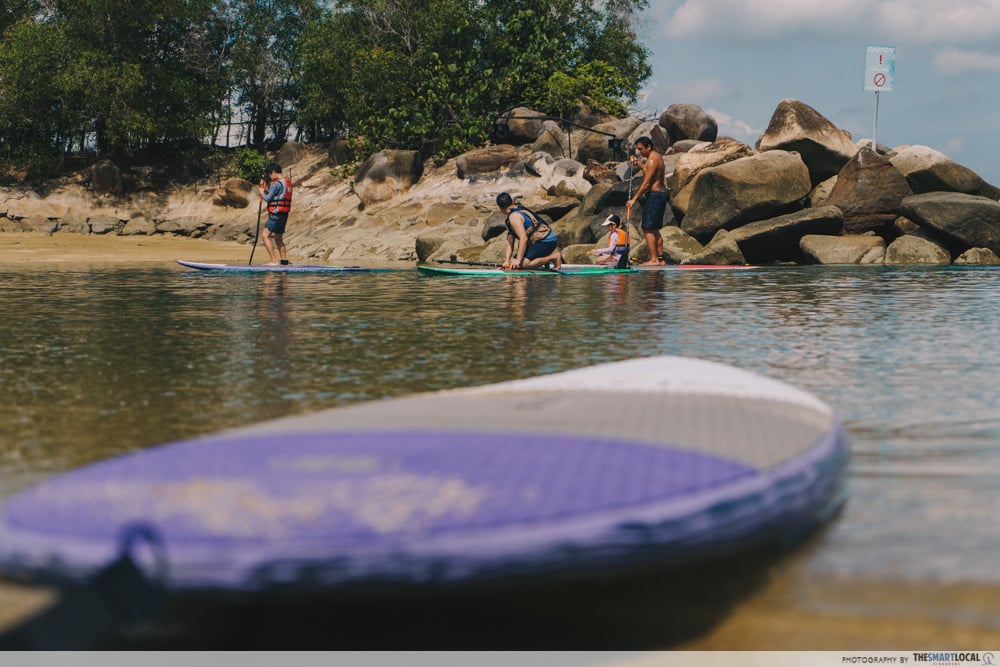
Luckily, we’re blessed with beautiful Singapore beaches that allow you to soak in getaway vibes akin to the likes of Potato Head and Nusa Dua in Bali. You can still go all out with sea activities like wakeboarding and stand-up paddling, and show off those washboard abs you’ve been working on all Circuit Breaker.
Several beachgoers lamented that their beach holiday plans had been cancelled earlier this year, and hitting our own local beaches are now a form of escape to replace that. Some also said that they had more leave days to clear since they couldn’t travel – and catching up with some good company on our local shores wasn’t a bad backup.
3. It’s a respite from the urban jungle
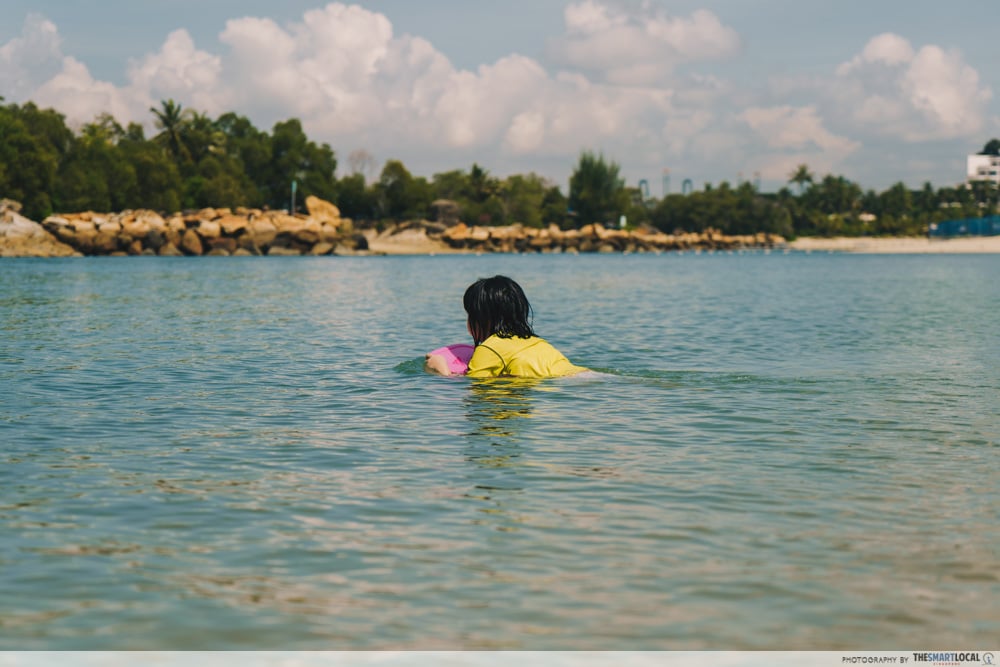 Sometimes, we just wanna swim away from our problems
Sometimes, we just wanna swim away from our problems
We live in a concrete jungle where skyscrapers and HDB blocks are the most common day-to-day sights. Being at the beach brings us closer to nature – apart from soft sand and ocean waves, our shores are also home to a rich diversity of marine life such as dolphins, sea turtles and corals.
For working adults, they appreciate the beach for being a place where they can take their mind off work and adulting. Living in a densely packed city that is a hive of activity, it’s no surprise why Singaporeans are always jetting off for vacations. For now, the beach has become our escape – as it surrounds us with ocean views and nature, away from the traffic and crowds.
4. It feels safer to be outdoors
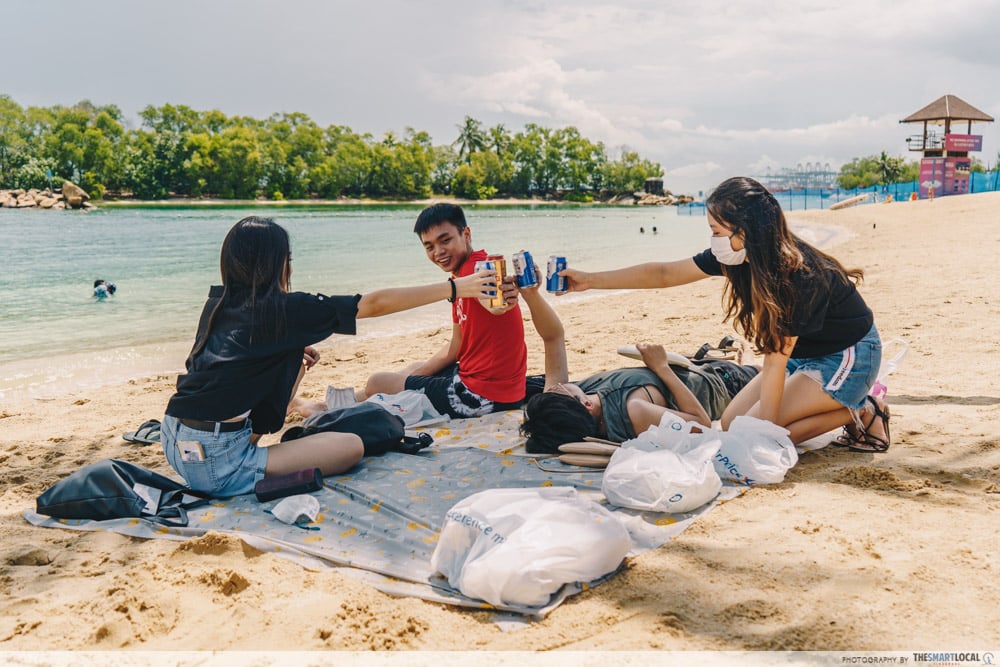
COVID-19 is still at the forefront of our minds, and it’s heartening to see people doing their part to be cautious. Several beachgoers explained that they preferred to lepak at beaches as there was more space for social distancing. Hanging out at open air spaces also made them feel safer compared to confined air-conditioned buildings.
5. It helps us relax after months of WFH

Most of us have been working from home since as early as February, and studies have shown that without the physical boundary of office and home, the WFH burnout is a real thing many of us are facing. Beaches are now one of the furthest you can get for a change of scenery, and bring back some semblance of work life balance.
How you can help to protect our beaches and the sea
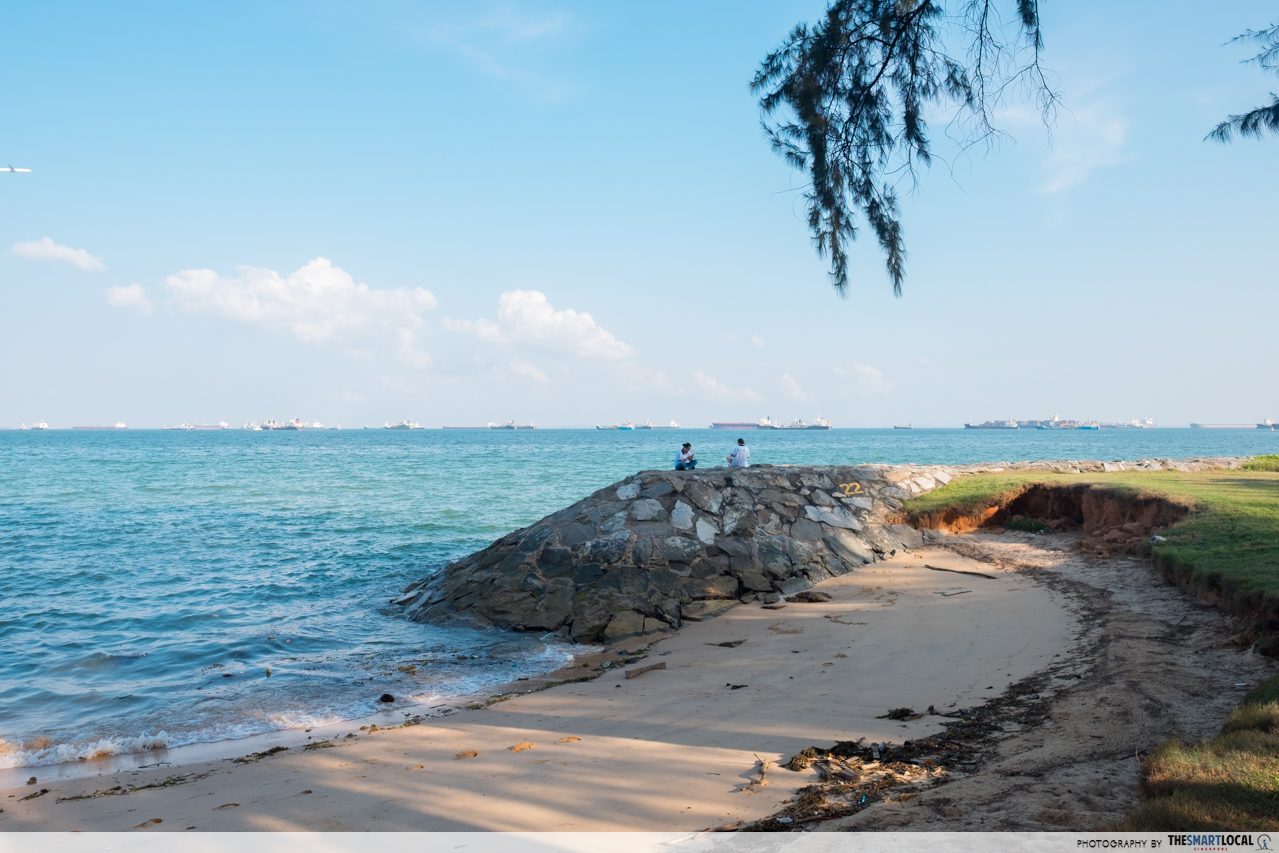
White sands, blue seas and Vitamin D – these are the ingredients for a getaway in Singapore right now. As we head to the beach more often, let’s also be mindful about keeping the oceans clean and being responsible for what we leave behind. The crabs, dolphins and sea turtles thank you in advance.
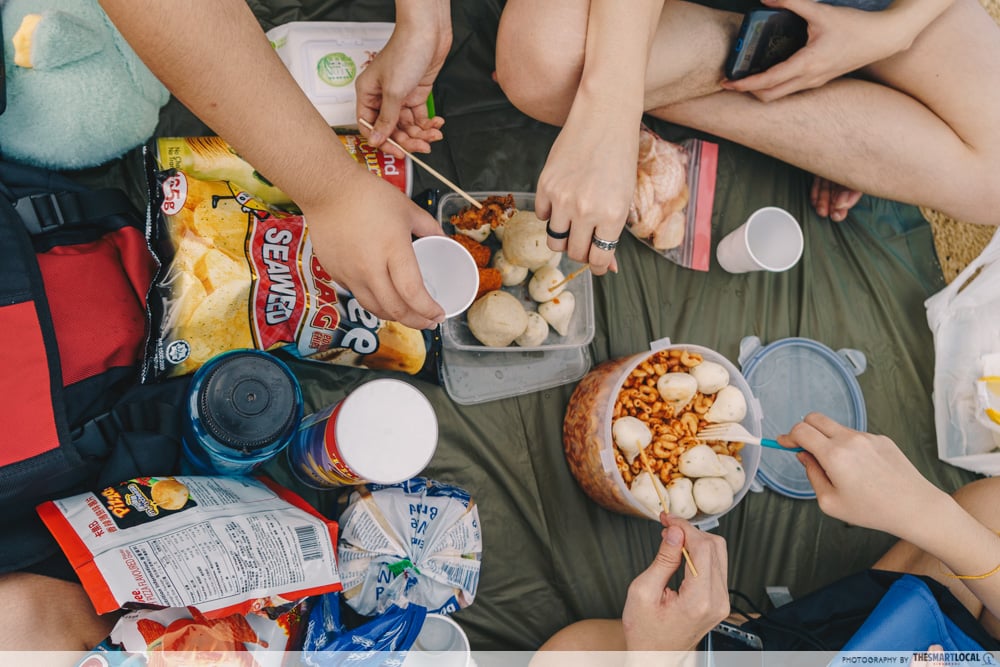
It’s not surprising that picnics are the most popular thing to do at the beach, as it allows us to just nua. However, this is one of the reasons why foam packaging and plastic bags are commonly found trash on the beach, which eventually gets washed into the ocean.
These are a hazard to marine animals as they often mistake them for food, and if ingested, it leads to death. Plastic can endanger coral reefs as it blocks sunlight and oxygen from reaching them. Turtles also tend to mistake plastic bags for jellyfish – one of their favourite foods.
To prevent this, picnickers can come prepared with trash bags to conveniently clear rubbish after you’re done and dispose of them properly at the nearest bin. You can also use reusable alternatives to daily essentials such as wheat cutlery sets and reusable ziplock bags for your next picnic outing.
Being eco-friendly can also be a daily affair with easy eco-friendly acts such as using bamboo toothbrushes instead of plastic ones, and recycling your trash the right way.
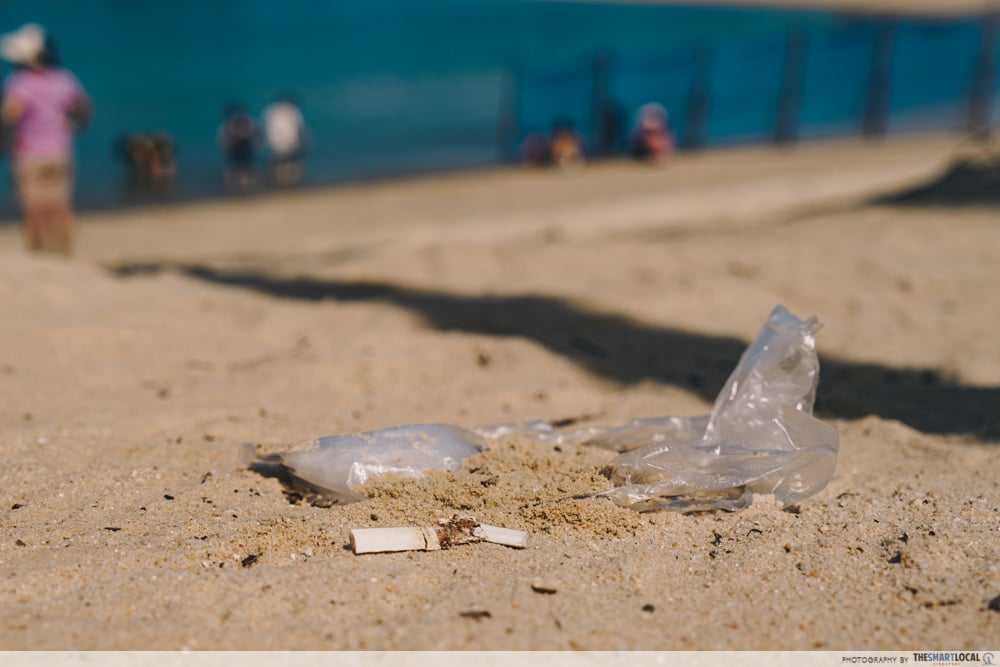 Not-so-fun fact: Cigarette butts are the most commonly found litter on our beaches
Not-so-fun fact: Cigarette butts are the most commonly found litter on our beaches
Cigarette butts top the list for commonly found litter, and they are especially toxic to marine life. They release microplastics and toxins like nicotine that kill sea creatures. Although you may be used to automatically flicking your cigarette butts away when done, do note that bins are easily found around beaches for proper disposal.
MPA’s Marine Clean-Up Day to keep Singapore seas clean
If you have newfound awareness about how disposables can endanger our waters, you’ll be glad to know that there are folks doing something about it.
Organised by the Maritime and Port Authority of Singapore (MPA) in partnership with International Coastal Cleanup Singapore, Our Singapore Reefs, Marine Stewards Singapore, Surfing Association Singapore and the Public Hygiene Council, volunteers came together to help remove marine debris during MPA’s Marine Clean-up Day.
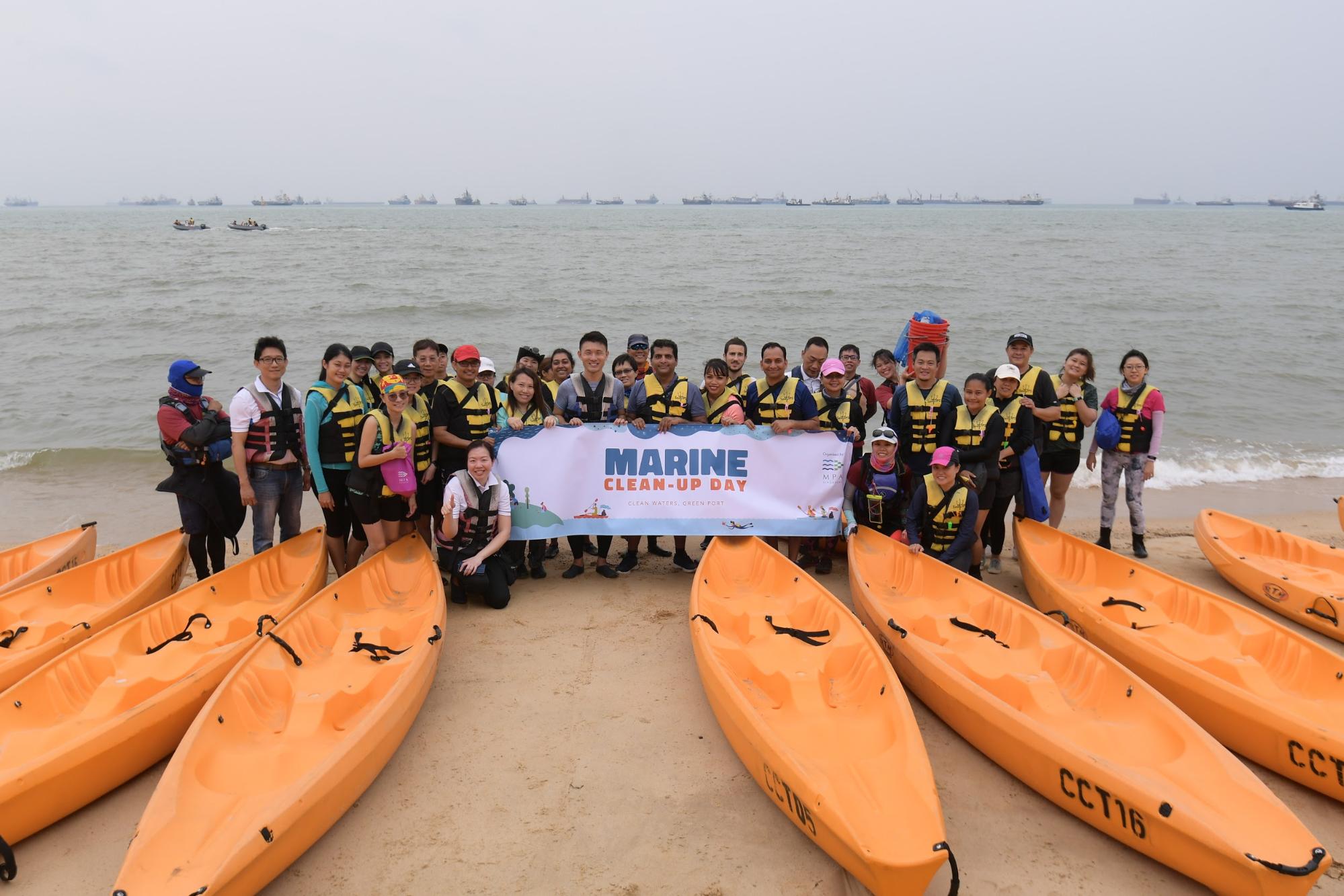 Mr Baey Yam Keng, Senior Parliamentary Secretary for Transport, and the volunteers in a joint-cleaning exercise to collect marine litter and debris during Marine Clean-up Day 2019
Mr Baey Yam Keng, Senior Parliamentary Secretary for Transport, and the volunteers in a joint-cleaning exercise to collect marine litter and debris during Marine Clean-up Day 2019
Image credit: MPA
These partnerships are part of MPA’s ongoing efforts to protect our marine environment and to ensure the cleanliness and safety of our port waters. To drive greater awareness, MPA has been organising regular community marine clean-up activities for members of the public who want to do their part to keep our marine environment clean.
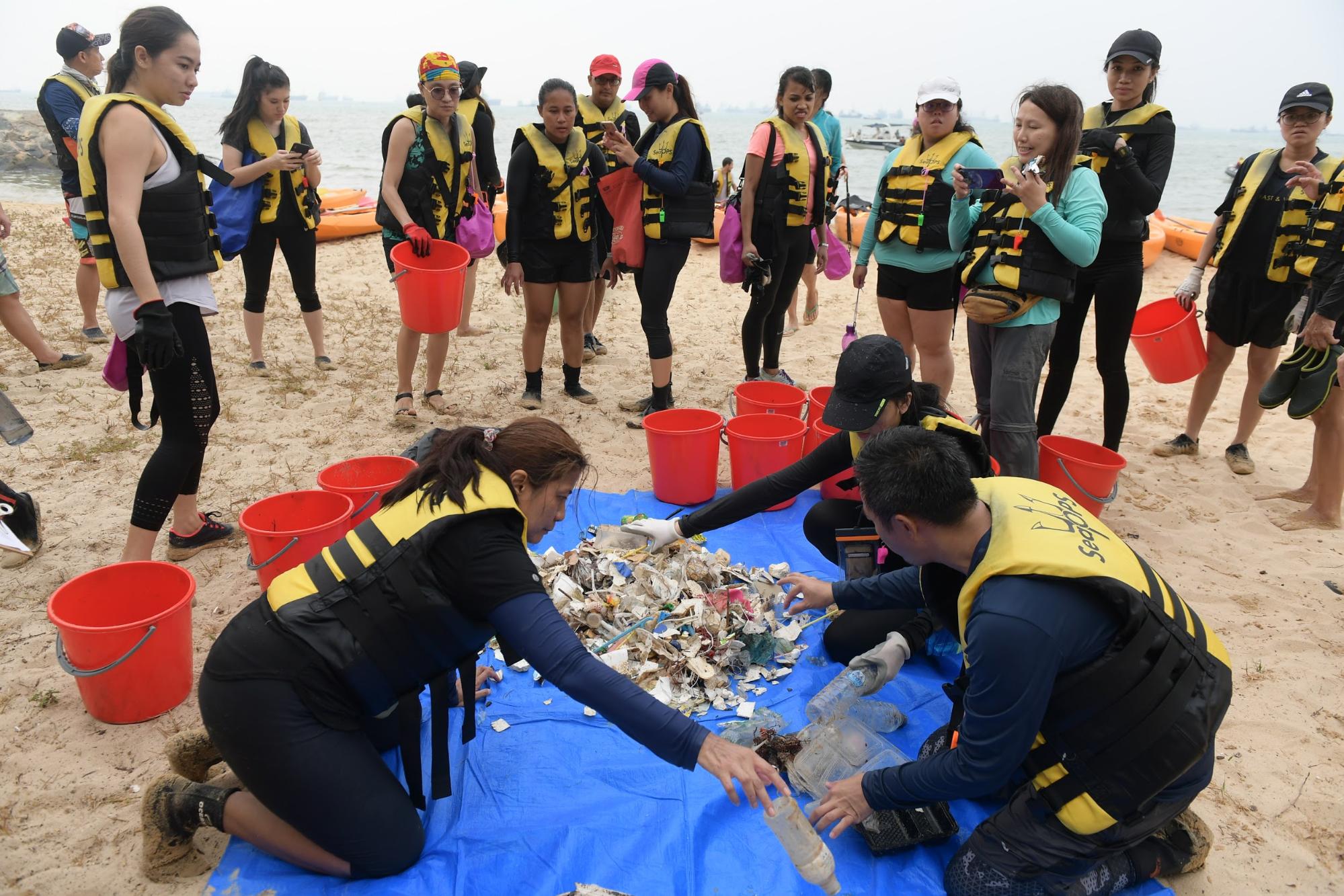 Volunteers sorting out marine litter and debris collected at MPA’s Marine Clean-up Day 2019
Volunteers sorting out marine litter and debris collected at MPA’s Marine Clean-up Day 2019
Image credit: MPA
As part of the coastal clean-up effort, volunteers would pick up marine litter and microplastics both on the shores and in the waters. In 2019 alone, they recorded a whopping total of 240kg of marine debris!
Due to the COVID-19 situation this year, the initiative has gone online instead of the usual physical clean-up, with virtual learning resources about marine environmental protection. For instance, check out the video below to really understand the impact of marine debris and find out how to keep our environment clean:
The impact of marine debris and how we can keep our marine environment clean
Also, get to know a little more about protecting corals:
MPA commissioned a coral conservation programme to protect our marine biodiversity
As we go about our daily lives in high-rises and HDB flats, it can feel as if we’re out of touch with the ocean, which may seem immune to our actions. However, apart from being the source of fun water activities and home to precious marine life, the ocean also generates more than half of the oxygen we breathe and helps to regulate the climate.
Our activities have a significant impact on the health of the ocean, so let’s all do our part and try these simple ways to keep our marine environment clean – especially during your next outing. Make a difference by making the change today. Every action counts!
This post was brought to you by Maritime and Port Authority of Singapore
Photography by Alaric Sim
